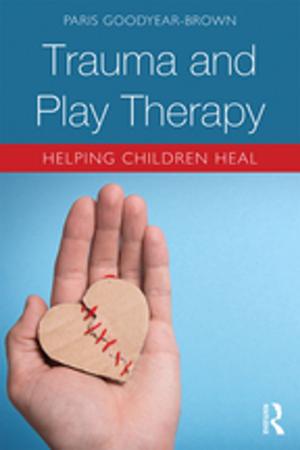The Analysis of Failure
An Investigation of Failed Cases in Psychoanalysis and Psychotherapy
Nonfiction, Health & Well Being, Psychology, Psychoanalysis, Psychotherapy, Mental Health| Author: | Arnold Goldberg | ISBN: | 9781136726811 |
| Publisher: | Taylor and Francis | Publication: | April 23, 2012 |
| Imprint: | Routledge | Language: | English |
| Author: | Arnold Goldberg |
| ISBN: | 9781136726811 |
| Publisher: | Taylor and Francis |
| Publication: | April 23, 2012 |
| Imprint: | Routledge |
| Language: | English |
Psychotherapy and psychoanalysis don't always work. Inevitably, a therapy or analysis may fail to alleviate the suffering of the patient. The reasons why this occurs are as manifold as the patients and analysts themselves, and oftentimes are a source of frustration and vexation to clinicians, who aren't always eager to discuss them. Taking the challenge head-on, Arnold Goldberg proposes to demystify failure in an effort to determine its essential meaning before determining its causes. Utilizing multiple vignettes of failed cases, he offers a deconstruction and a subsequent taxonomy of failure, delineating cases that go bad after six months from cases that never get off the ground, mismatches from impasses, failures of empathy from failures of inattention. Commonalities in the experience of failure – conceived as less a misapplication of technique than consequences of a co-constructed yet fraught therapeutic relationship – begin to emerge for scrutiny.
Psychotherapy and psychoanalysis don't always work. Inevitably, a therapy or analysis may fail to alleviate the suffering of the patient. The reasons why this occurs are as manifold as the patients and analysts themselves, and oftentimes are a source of frustration and vexation to clinicians, who aren't always eager to discuss them. Taking the challenge head-on, Arnold Goldberg proposes to demystify failure in an effort to determine its essential meaning before determining its causes. Utilizing multiple vignettes of failed cases, he offers a deconstruction and a subsequent taxonomy of failure, delineating cases that go bad after six months from cases that never get off the ground, mismatches from impasses, failures of empathy from failures of inattention. Commonalities in the experience of failure – conceived as less a misapplication of technique than consequences of a co-constructed yet fraught therapeutic relationship – begin to emerge for scrutiny.















